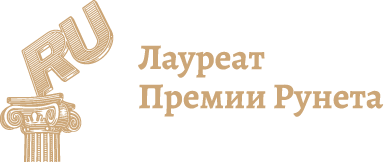700 saved
The scale of the humanitarian catastrophe resulting from the South Ossetian conflict is becoming more vivid with each day.
Refugee camps are springing up one after the other in the Alagir village outside Vladikavkaz. But international organizations such as the OSCE, UN and Doctors Without Borders aren't rushing here with aid. The tragedy of the Ossetian people interferes with Western plans to build a democracy in the Caucasus and they pay little attention to what has truly happened. If the international community cared for the Ossetian people, they would have slapped economic sanctions on the Georgian aggressor long ago.
We searched for the refugee camp in Alagir for quite some time. Our driver, an Ossetian, who was sincerely worried about the events that had unfolded, pulled himself together when he saw the police station alongside the highway.
"Oh! I'll ask them where it is," he said. "They'll know." He came back a minute later with a sour expression on his face.
"They told me: 'Give us 50 rubles and we'll show you where the refugees are!'" the driver said. We rode further in silence.
The refugee camp — lines of tents and field kitchens — rests on the yard outside an old automobile factory. Toothpaste, toothbrushes and soap had already been handed out to the refugees. A businessman had arrived earlier with a trunkload of hygienic supplies. Before all the goods had been handed out, another generous individual drove up with clothes for the children.
The wind carried the strong odor of iodine from a medical tent nearby. A young mother held her child in her arms. When she saw our team of photographers, she cloaked his scarred face and moved away. She didn't want the world to see him this way. She had taken her child into a basement in Tskhinvali where they were later hit by shrapnel. Her husband was still at war and she had received no word from him.
Everyone here has a tragedy to share. Vera, a pharmacist from Tskhinvali, spent 8 days in a basement with her 6-month-old son Vitaliy. They drank water with worms and ate old cheese. Although Vitaliy is sleeping he still sucks on his mother's breast.
"He just can't get enough to eat since Monday," she said. "The milk came back since we arrived here."
I glanced into one tent and started sweating from the heat. The Bagloyev family had fled Tskhinvali separately. The mother had traveled in the backseat of an old Soviet car together with their dead neighbor. They couldn't bury the young girl in Tskhinvali due to the fighting.
This was the third time I had heard the last name Bagloyev. Five hours before the war started, I was on the Georgian side of South Ossetia. I met a woman named Liliya Bagloyeva, an Ossetian, who had taught the Georgian language at a local school for 40 years.
What a strange coincidence... Now Marina tells me that Liliya is her relative. I told her that "aunt Liliya" is no longer on the front and she shouldn't worry. But in fact I remember how Liliya and I had watched the first refugees fleeing Tskhinvali. She told me she had no reason and no place to go. Maybe Liliya somehow made it out alive. At 700 other people did who are now living at this refugee camp.
Читать русскую версию: 700 спасенных
